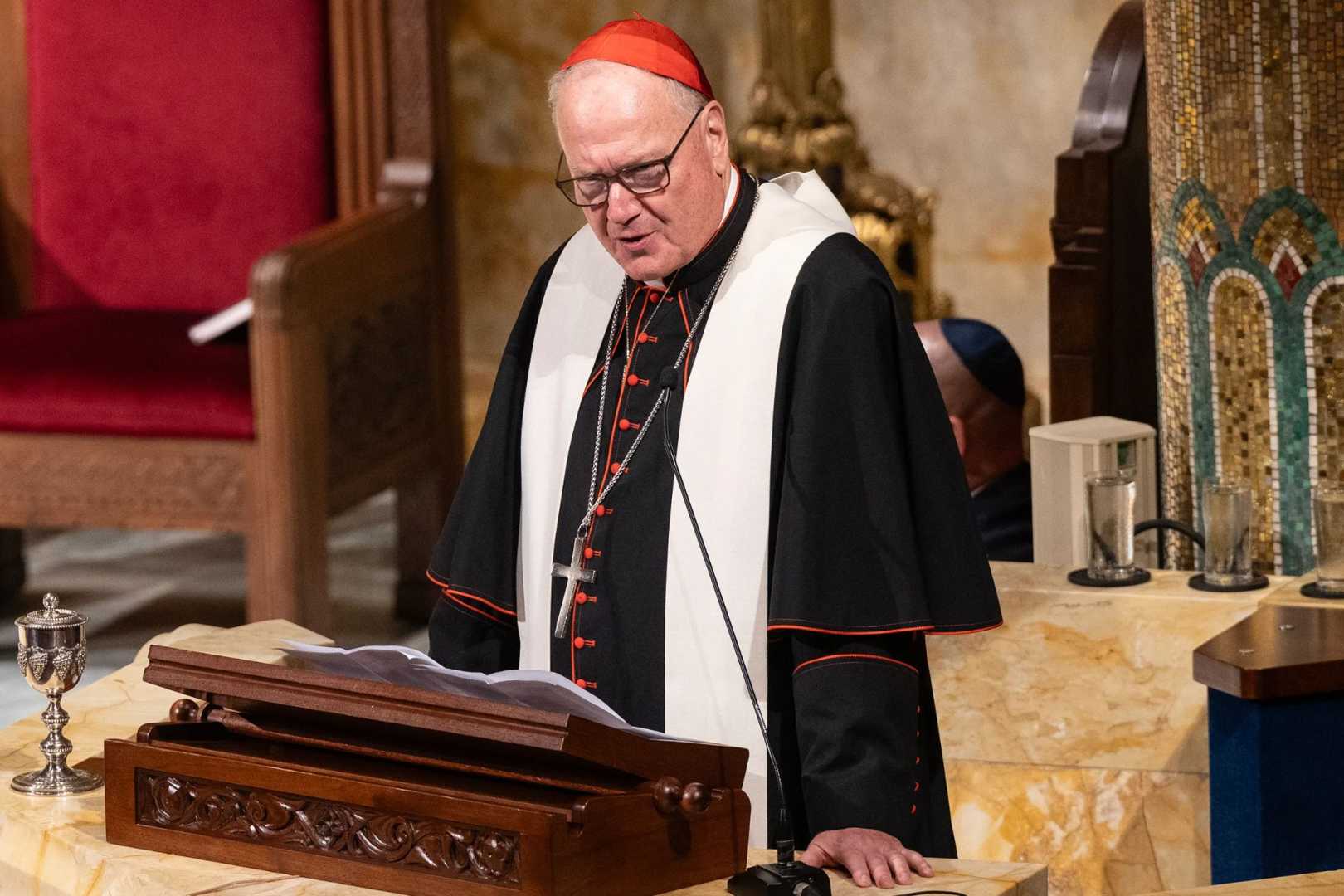Politics
Cardinal Dolan Marks Retirement Amid Political and Cultural Divisions

NEW YORK, Feb. 20, 2025 — Cardinal Timothy Dolan, an influential figure in both ecclesiastical and political circles, celebrated his 75th birthday last week. As per Church protocols, Dolan submitted his resignation letter to Pope Francis, though he will continue in his role until a successor is appointed. This may take time as Pope Francis is currently recuperating from double pneumonia.
Dolan’s resignation marks a significant moment for the Catholic Church in America, a period where the institution is navigating through heightened political polarization and cultural divisions. The cardinal’s influence stretches beyond ecclesiastical matters, as he has skillfully balanced relationships across the political spectrum.
Ross Douthat, a columnist for The New York Times, pointed out in his 2018 book, “To Change the Church,” that while Catholics may appear united, there exists a profound divide reflective of broader societal conflicts. Many Catholics, traditionally swing voters, have increasingly aligned with either Republican or Democratic positions based on hot-button issues such as abortion and immigration policy.
Historically, prominent Catholics advocated unified stances on social issues, including opposition to abortion and support for marginalized groups. However, in today’s climate, fewer leaders seem willing or able to uphold these complex viewpoints amid rampant political polarization.
For more than 15 years, Dolan has stood out as a notable exception within this landscape. His engagement with political figures has drawn both praise and criticism. In 2020, he faced backlash from progressive Catholics after he hosted a conference call advocating for Catholic education and welcomed then-President Donald Trump to a virtual Mass at St. Patrick’s Cathedral, acknowledging his administration’s efforts in addressing religious community needs during the pandemic.
More recently, Dolan refuted claims made by Catholic Vice President JD Vance, who suggested that the U.S. Conference of Catholic Bishops‘ assistance to undocumented immigrants was driven by financial incentives. “That’s just scurrilous, it’s very nasty, and it’s not true,” Dolan stated during a radio broadcast. He emphasized that supporting immigrants is rooted in mercy, not profit.
Dolan’s nuanced approach allows him to elude complete alignment with any political faction, making him a rare figure in contemporary discourse. He asserts that the Church’s primary mission is humanitarian, not enforcement-oriented, regarding immigration—a viewpoint that has become increasingly important as political tensions rise.
The challenge ahead for Pope Francis is finding a successor who can match Dolan’s unique ability to champion the Church’s values while maintaining rapport with political leaders across party lines. As Dolan prepares to retire, his absence will be felt deeply within both the Church and American society as a whole.
In conclusion, as Dolan approaches the end of his tenure, the Catholic Church faces the impending challenge of bridging divides in a time of significant social upheaval. His leadership will be sorely missed, revealing the void that becomes evident only when it is no longer present.












